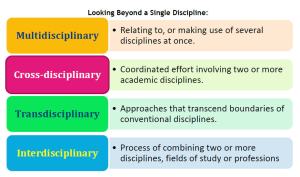Here are a few of the new titles which have arrived in the past few months.
 See the most current list at New WGSS books.
See the most current list at New WGSS books.
Smith, B. G. (2013). Women’s studies: The basics. London: Routledge.
Collingwood, S. L., Quintana, A. E., & Smith, C. J. (2012). Feminist cyberspaces: Pedagogies in transition. Newcastle: Cambridge Scholars.
Runyan, A. S. (2013). Feminist (im)mobilities in fortress(ing) North America: Rights, citizenships, and identities in transnational perspective. Farnham, Surrey: Ashgate.
Loomba, A., & Lukose, R. A. (2012). South Asian feminisms: Contemporary interventions. Durham: Duke University Press.
Herrin, J. (2013). Unrivalled influence: Women and empire in Byzantium. Princeton: Princeton University Press.
Liu, L. H., Karl, R. E., & Ko, D. (2013). The birth of Chinese feminism: Essential texts in transnational theory. New York: Columbia University Press.
Kronsell, A., & Svedberg, E. (2012). Making gender, making war: Violence, military and peacekeeping practices. New York, NY: Routledge.
Lacsamana, A. E. (2012). Revolutionizing feminism: The Philippine women’s movement in the age of terror. Boulder: Paradigm Publishers.
Fraser, N. (2013). Fortunes of feminism: From state-managed capitalism to neoliberal crisis.
Brown, H. A. (2012). Marx on gender and the family: A critical study. Leiden: Brill.
Chadwick, W. (2012). Women, art, and society. London: New York, N.Y.
Enke, A. (2012). Transfeminist perspectives in and beyond transgender and gender studies. Philadelphia: Temple University Press.
Phillips, L., & Cole, S. C. (2013). Contesting publics: Feminism, activism, ethnography.
Crawford, M. (2012). Transformations: Women, gender & psychology. New York: McGraw-Hill.
King, D. L., & Smith, C. L. (2012). Men who hate women and women who kick their asses: Stieg Larsson’s Millennium trilogy in feminist perspective. Nashville, Tenn: Vanderbilt University Press.
Gutiérrez, . M. G. (2012). Presumed incompetent: The intersections of race and class for women in academia. Boulder, Colo: University Press of Colorado.
Dziedzic, N. G. (2012). Feminism. Detroit: Greenhaven Press.
New WGSS books
Filed under: Feminist Research, Feminist Studies, New Books | Tagged: New Books, WGSS research | Leave a comment »









